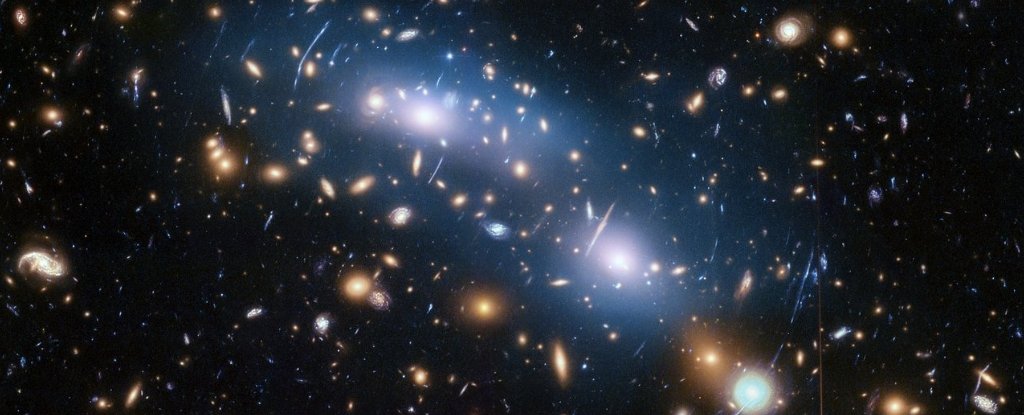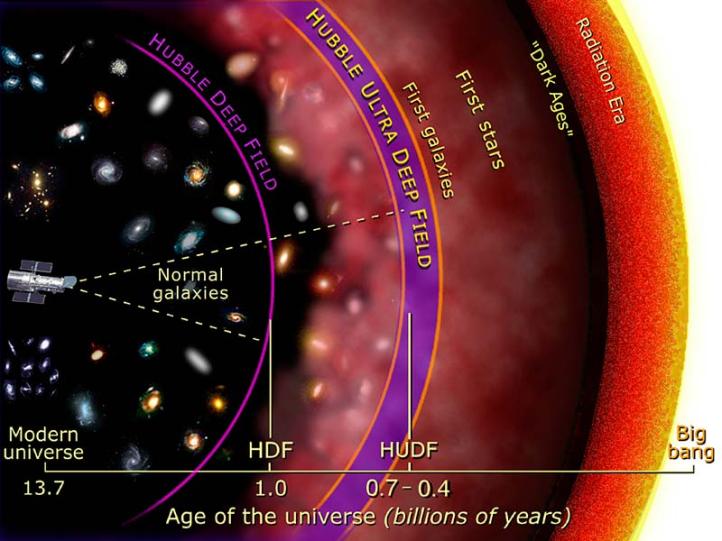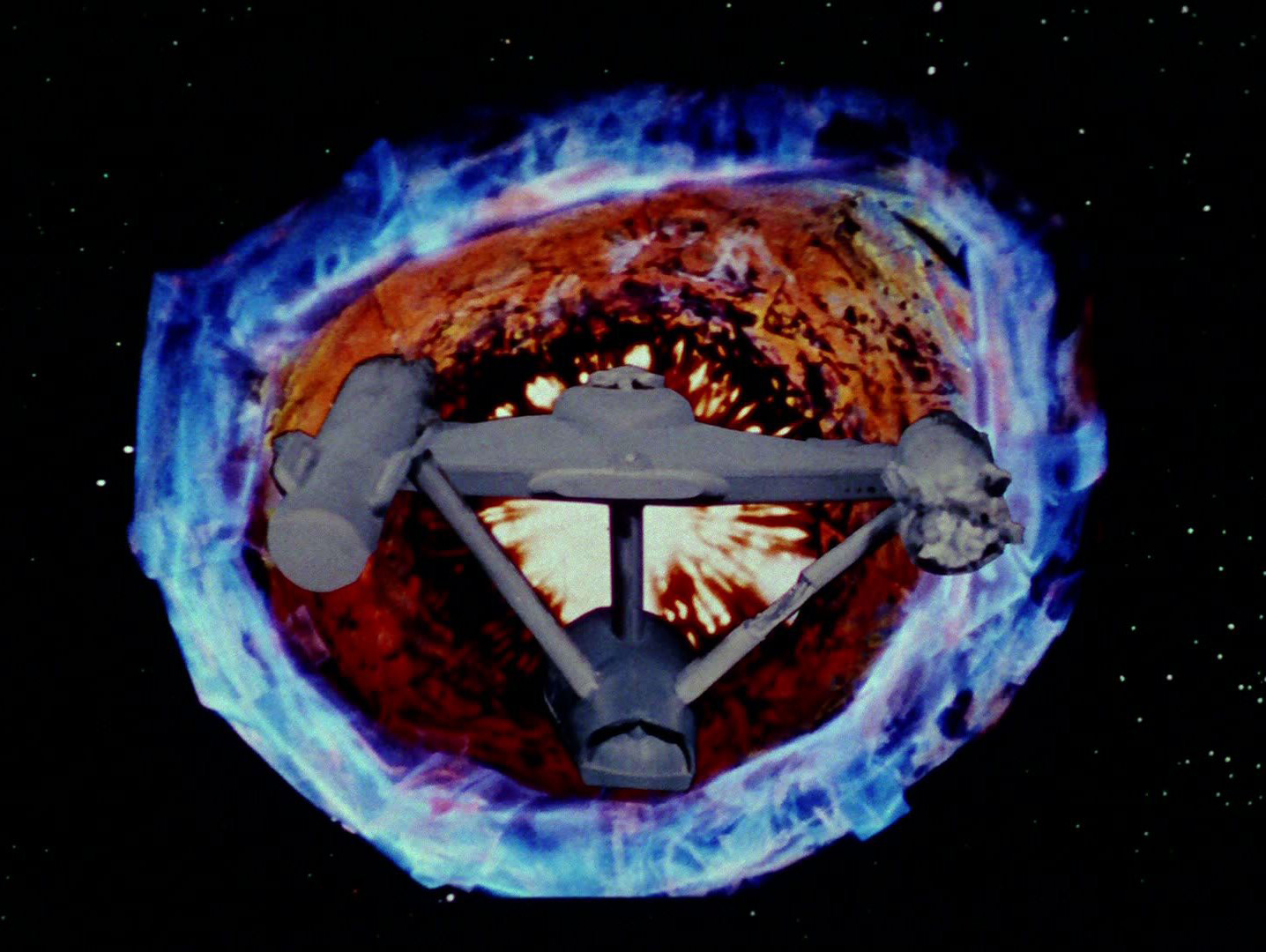
Posted on 06/08/2020 12:56:55 PM PDT by Red Badger
Astronomers don't know exactly when the first stars formed in the Universe because they haven't been observed yet. And now, new observations from the Hubble Space Telescope suggest the first stars and galaxies may have formed even earlier than previously estimated.

Why? We *still* haven't seen them, even with the best telescope we've got, pushed to its limits.
A group of researchers used Hubble to look back in time (and space) as far as it could see, hoping to study these first generation of stars of the early Universe, which are called Population III stars.
Hubble peered and squinted back to when the Universe was just 500 million years old – which is thought to be Hubble's limit — and found no evidence of these very first stars.
The name — Population III – is a little confusing. Shouldn't these first stars be called Population I stars? Let's face it, astronomers have never been great about naming things.
The name Population I had already been taken when astronomers classified the stars of the Milky Way as Population I (stars like the Sun, which are rich in heavier elements). Then, the name Population II was used to classify older stars in the Milky Way with a low heavy-element content.
And that left the name Population III to classify the stars that were forged from the primordial material that emerged from the Big Bang, approximately 13.8 billion years ago.
Population III stars must have been made solely out of hydrogen, helium and lithium, the only elements that existed before processes in the cores of these stars could create heavier elements, such as oxygen, nitrogen, carbon and iron.
Rachana Bhatawdekar of the European Space Agency led this most recent study, probing the early Universe from about 500 million to 1 billion years after the Big Bang.
They studied the star cluster MACSJ0416 (see earlier comment about astronomers naming nomenclature) and the surrounding field with the Hubble Space Telescope, along with using supporting data from NASA's Spitzer Space Telescope and the ground-based Very Large Telescope of the European Southern Observatory).
HFFIllustration of the depth by which Hubble imaged galaxies in prior Deep Field initiatives, in units of the Age of the Universe. (NASA and Feild)
These observations were part of Hubble's Frontier Fields program, which observed six distant galaxy clusters from 2012 to 2017, and produced the deepest observations ever made of galaxy clusters and the galaxies located behind them.
This was achieved by using the gravitational lensing effect, where the masses of foreground galaxy clusters are large enough to bend and magnify the light from the more distant objects behind them. This allows Hubble to use these cosmic magnifying glasses to study objects that are beyond its nominal operational capabilities.

These observations revealed galaxies between 10 to 100 times fainter than any previously observed.
Bhatawdekar and her team developed a new technique that removes the light from the bright foreground galaxies that constitute these gravitational lenses.
This allowed them to discover galaxies with lower masses than ever previously observed with Hubble, at a distance corresponding to when the Universe was less than a billion years old.
"We found no evidence of these first-generation Population III stars in this cosmic time interval," said Bhatawdekar.
"These results have profound astrophysical consequences as they show that galaxies must have formed much earlier than we thought."
Since these observations are at the limits of Hubble, it puts one more task on the to-do list for the upcoming James Webb Space Telescope.
This article was originally published by Universe Today. Read the original article.
“meaning the entire “Big Bang” paradigm is just flat out wrong
What?! You don’t believe in SCIENCE! It’s SETTLED!
“because the alternative is emotionally unacceptable”
Why?
This is because the Universe is a lot larger that the visible Universe. There was no Big Bang.
Nothingness. There is no outside, just nothingness.
I bought batteries once but they weren’t included.
-Steven Wright
“The James Webb Telescope (JWT) will pick up where/when Hubble leaves off”
The Webb Hubble Telescope? ... Can it discern the Origins of (Chelsea’s) Life?
Infinity is bigger than we thought.
I viewed this earlier today... interesting, and recommend if that is your thing:
If the universe is only 14 billion years old, how can it be 92 billion light years wide?
9 minutes youtube from about 1 year ago by Fermilab.
I’d be satisfied if Webb can merely discern origins of the Won’s life.
Unless is correct. So far, observations do not allow us to see the "edge" of the universe from any direction. It only appears that we are at the center because we are stuck at this observation point.
Steven Wright is my all time favorite comedian.

Infinity.
*** The James Webb Telescope (JWT) will pick up where/when Hubble leaves off. When fully operational, the JWT will be located approx. 1 million miles from earth. ***
Going to make it difficult for NASA to service that telescope when they discover somebody made a boo-boo — like entered incorrect contour grinding parameters into the high-tech lens grinder.

“In the Beginning, God....”
That’s enough said. Further theorizing is tail chasing.
“The story so far: In the beginning the Universe was created. This has made a lot of people very angry and been widely regarded as a bad move.”
It is all so fascinating!
When we were in high school, we use to ask a teacher if the universe is expanding, what is it expanding into. They reacted with impatience.
In college, same question, same reaction.
I have read a few supposedly scientific explanations, but they don’t make sense.
Nothing can move through space faster than the speed of light. Space itself has no such speed limit. That’s why the universe is speculated to be 93BLY across after only 14B years.
Disclaimer: Opinions posted on Free Republic are those of the individual posters and do not necessarily represent the opinion of Free Republic or its management. All materials posted herein are protected by copyright law and the exemption for fair use of copyrighted works.